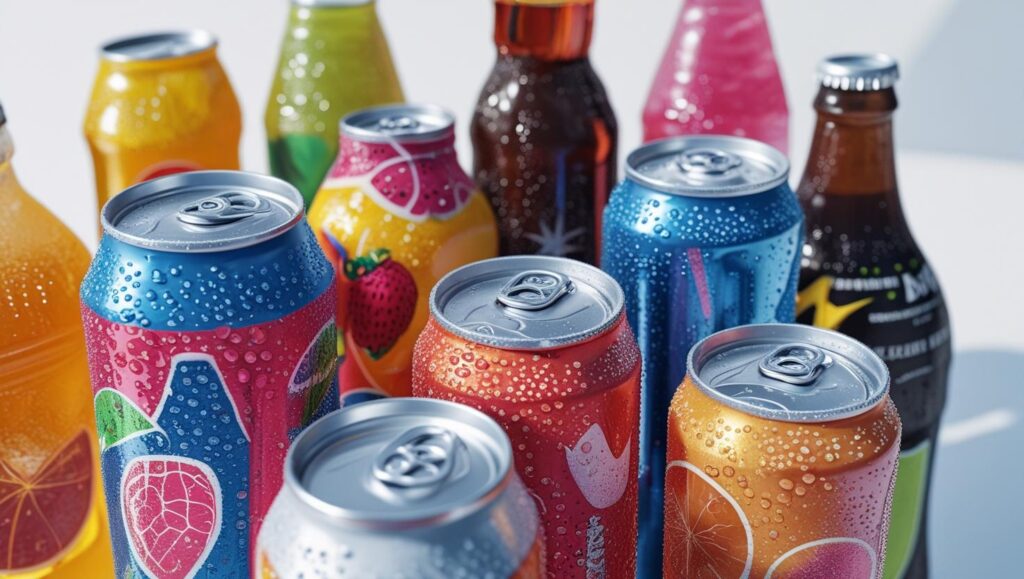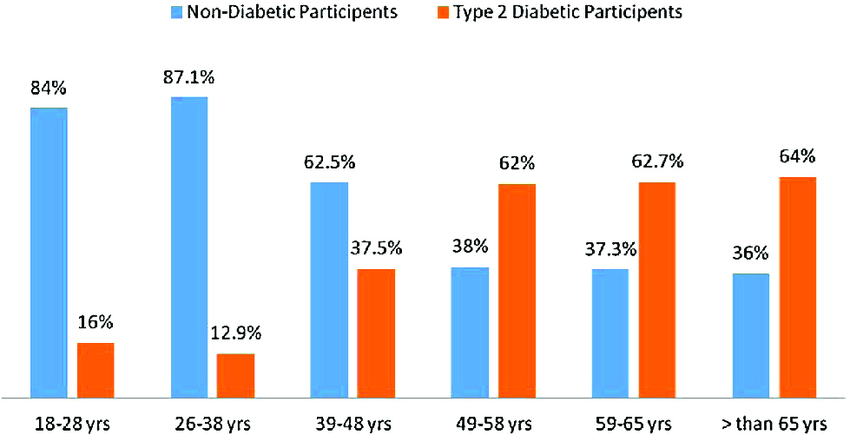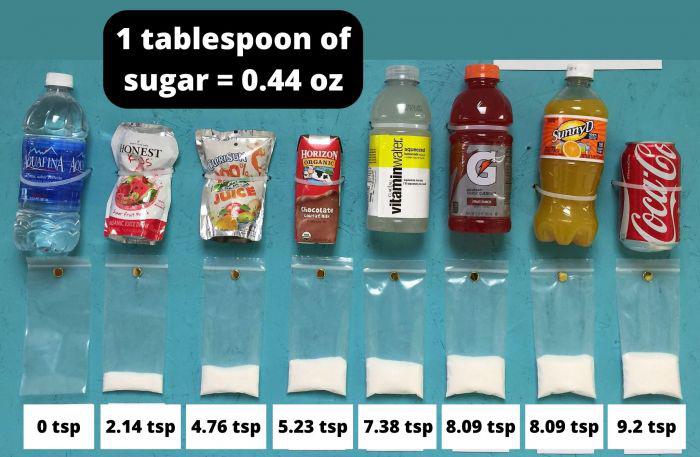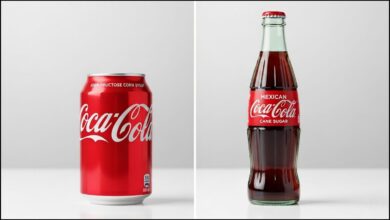The form in which sugar is consumed may be more critical to health than the total amount, according to a new comprehensive review which found that drinking sugar is significantly associated with an increased risk of developing type 2 diabetes. In contrast, the analysis did not find the same link for sugar consumed in solid foods, a finding that sharpens the focus on sugar-sweetened beverages as a primary public health concern.
Key Insights from the Study
| Key Finding | Detail / Statistic |
| Liquid vs. Solid Risk | Sugar-sweetened beverages were linked to a higher risk of type 2 diabetes, while sugar consumed from solid foods was not. |
| Increased Diabetes Risk | Each additional daily 12-ounce serving of a sugary drink was associated with a 25% higher risk of type 2 diabetes. |
| Metabolic Mechanism | Liquid sugar is absorbed rapidly, potentially overwhelming the liver’s ability to process it and bypassing the brain’s satiety signals. |
Form Over Quantity: New Study Reframes Sugar Debate
A major new meta-analysis is challenging the conventional wisdom that all sugars are created equal. The research, conducted by a team at Brigham Young University and published in the peer-reviewed journal Advances in Nutrition, systematically reviewed 29 previous studies involving over half a million participants across multiple continents.
The study’s most striking conclusion is the divergent risk profiles for sugar based on its physical form. Researchers found that every additional daily 12-ounce serving of sugar-sweetened beverages—such as sodas, sports drinks, and energy drinks—was linked to a 25% greater likelihood of developing type 2 diabetes. Even 100% fruit juice showed an association, with each 8-ounce serving increasing the risk by 5%.
Surprisingly, the analysis did not find a statistically significant link between the consumption of added sugars in solid foods and an increased risk for the disease. In some cases, the study noted, naturally occurring dietary sugar from food appeared to have a slightly protective effect.
“This research fills an important gap by emphasizing the context in which sugar is consumed,” said Dr. Karen Della Corte, lead author of the study and a nutrition science professor at BYU, in a statement to Health.com. “Rather than making blanket statements to ‘cut all sugar,’ we now have strong evidence that the source, form, and surrounding nutrients are key determinants of risk.”
It is important to note that the study demonstrates a strong association, not a direct causation. The authors acknowledged that other lifestyle habits could play a role, though most studies in their analysis adjusted for confounding factors like Body Mass Index (BMI) and smoking.

The Metabolic Pathway: Why Drinking Sugar is Different
Scientists suggest the stark difference in health outcomes between liquid and solid sugars lies in how the body processes them, a key factor in overall metabolic health.
The Speed of Absorption
When sugar is consumed in a liquid form, it is free of other nutrients like fiber, protein, and fat that slow down digestion. This allows the sugar, particularly fructose, to be absorbed into the bloodstream almost instantly. This rapid influx causes a sharp spike in blood glucose and insulin levels. Solid foods, even sweet ones, are typically digested more slowly, leading to a more gradual and manageable metabolic response.
Overwhelming the Liver
The liver is the primary site for fructose metabolism. According to Dr. Della Corte, a sudden, large dose of liquid fructose can overwhelm the liver’s capacity. When this happens, the liver begins converting the excess fructose into fat, a process known as de novo lipogenesis. This can lead to an accumulation of fat in the liver, a condition linked to hepatic insulin resistance, which is a key driver of type 2 diabetes.

Context and Public Health Guidelines
The findings of this new study reinforce existing public health warnings against the consumption of sugar-sweetened beverages. Global and national health organizations have long identified these drinks as major contributors to obesity and chronic disease.
The World Health Organization (WHO) recommends that adults and children reduce their daily intake of free sugars to less than 10% of their total energy intake. The WHO further suggests that a reduction to below 5%, or about 25 grams (6 teaspoons) per day, would provide additional health benefits.
Similarly, the American Heart Association (AHA) advises a stricter limit on added sugars: no more than 9 teaspoons (36 grams) per day for most men and 6 teaspoons (25 grams) for most women and children. The AHA explicitly identifies sugary drinks as the single largest source of added sugar in the American diet.
“Be proactive in planning for the times you are likely to crave a soda,” advised Dr. Laura A. Schmidt, a professor at the University of California, San Francisco, who was not involved in the study. Speaking to Health.com, she noted the potentially addictive nature of these beverages and recommended a gradual weaning process for those who consume them regularly.

Expert Reaction and Future Implications
The consensus among nutrition experts is that this research provides a more nuanced understanding of sugar’s role in the diet. The focus is shifting from a simple anti-sugar message to a more specific warning about the dangers of liquid sugar.
“The study highlights why drinking your sugar – whether from soda or juice – is more problematic for health than eating it,” Dr. Della Corte stated in an interview with BBC Science Focus.
The findings could influence future dietary guidelines, potentially leading to stronger and more specific recommendations against consuming sugary drinks. Experts hope this evidence will empower both consumers and policymakers to make more informed choices to protect public health. The research underscores a simple but powerful message: what you drink may have a more immediate and potent impact on your metabolic health than what you eat.

 Trump Claims Coca-Cola Will Adopt Cane Sugar; Company Denies Plan, Experts Debate Health Merits
Trump Claims Coca-Cola Will Adopt Cane Sugar; Company Denies Plan, Experts Debate Health Merits New Research Connects Ultra-Processed Foods to Higher Lung Cancer Risk, Even in Non-Smokers
New Research Connects Ultra-Processed Foods to Higher Lung Cancer Risk, Even in Non-Smokers From Lab to Bedside: Overcoming the Hurdles to Patient Enrollment in Oncology Research
From Lab to Bedside: Overcoming the Hurdles to Patient Enrollment in Oncology Research What Science Says About the Best Time to Eat Dinner for Your Metabolism and Sleep
What Science Says About the Best Time to Eat Dinner for Your Metabolism and Sleep